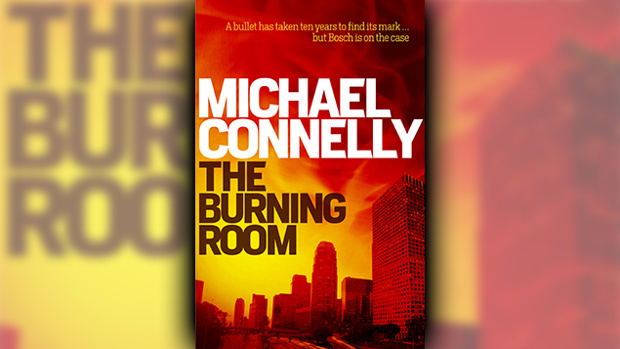Stephanie Jones: Book Review - The Burning Room by Michael Connelly
- Publish Date
- Friday, 16 January 2015, 3:10PM

- Author
- By Stephanie Jones
Crisply plotted and expertly executed, Michael Connelly’s The Burning Room exemplifies the adroit crime drama. In this case, the somewhat old-fashioned gumshoe detective work of Hieronymus “Harry” Bosch and his rookie partner Lucia Soto is undertaken at an intriguing remove from the criminality they’re seeking to identify, the murder victim having only just succumbed to a bullet that pierced his spine in an open-air shooting 10 years earlier.
As investigators with the Open-Unsolved Unit of the Los Angeles Police Department, Bosch and Soto are climbing a metaphorical mountain of delinquency, their homicide of interest being one of 10,000 that has gone unsolved in the past 50 years. Though more resources are being pumped into the department’s work, and Bosch is a year away from formally ending a storied career, the politics of the environment are as difficult to navigate as ever and necessitate some below-radar, unsanctioned digging by the duo, which quickly establishes mutual respect.
Mariachi musician Orlando Merced was thought to have been the victim of a stray bullet during a gang confrontation in which he had no part, merely being in the wrong place at the wrong time. The yielding of the bullet at autopsy, however, provides an essential clue about the weapon that delivered it, and sets the detectives on an arc towards powerful civic politicians, their monied backers, and the miscreants and bottom-feeders that mill around the corruptible.
Soto’s bilingualism comes in handy, and Bosch recognizes that it’s a mistake to assume she is green just because she is new to the detective role. She made her name in the LAPD for her conduct during a deadly firefight outside a liquor store, and she has her own ghosts to settle as the survivor of a fire in an apartment building that caused nine deaths. And what do you know? That building is near Mariachi Plaza, and though the fire is an even colder case than the Merced shooting, Soto having been a child at the time, the events may be linked. The roots of LA’s most mendacious run that deep, and Connelly is that good at storycraft. It all falls together as convincingly as if it really happened.
Bosch is a fascinating type, a hero in the old-school sense. In his 17th fictional outing, he is feeling nostalgic and melancholy, treating the hours left in his work like diamonds, reflecting on his parental failings – though his teenage daughter, Maddie, who is similarly entranced by police work and came to live with him following the death of her mother, shows no effects of lack or neglect.
What’s more, he rues how the art of investigation has changed, become deskbound and computer-centric, even if some of The Burning Room’s most intriguing moments are found in its currency, the frank elucidation by Connelly of matters ranging from the law surrounding electronic communications and police surveillance to the stringent forensic process used to link a fatal bullet to a particular model of firearm. It is all too easy to see, in Bosch’s blend of competence, tenacity, and matchless experience, how the bad guys sneak through gaps created by the less accomplished in the thin blue line.
At The Burning Room’s end, the stalwart Bosch departs the scene in a somewhat noncommittal fashion, but I doubt his story terminates here. As Connelly shows, there’s plenty of life in the old firebrand yet.
Take your Radio, Podcasts and Music with you

